Anxiety
Recent articles
Lions and tigers and bears: Long-lived zoo animals offer a promising venue to study mental health and neurodegenerative disorders
These animals’ lifestyles often mirror those of people, making them a more relevant milieu than lab mice for determining how environmental factors influence mental health and cognitive decline. Studying them could improve animal welfare in the process.
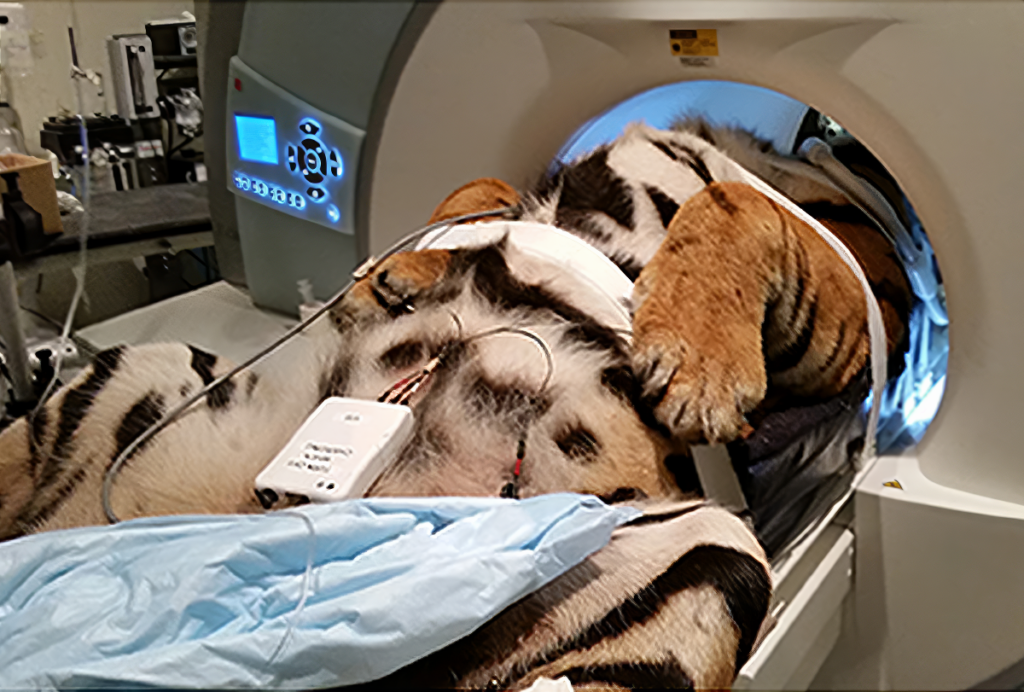
Lions and tigers and bears: Long-lived zoo animals offer a promising venue to study mental health and neurodegenerative disorders
These animals’ lifestyles often mirror those of people, making them a more relevant milieu than lab mice for determining how environmental factors influence mental health and cognitive decline. Studying them could improve animal welfare in the process.
Rethinking mental health: The body’s impact on the brain
Mounting evidence illustrates how peripheral molecules can influence brain function, offering new therapeutic targets.
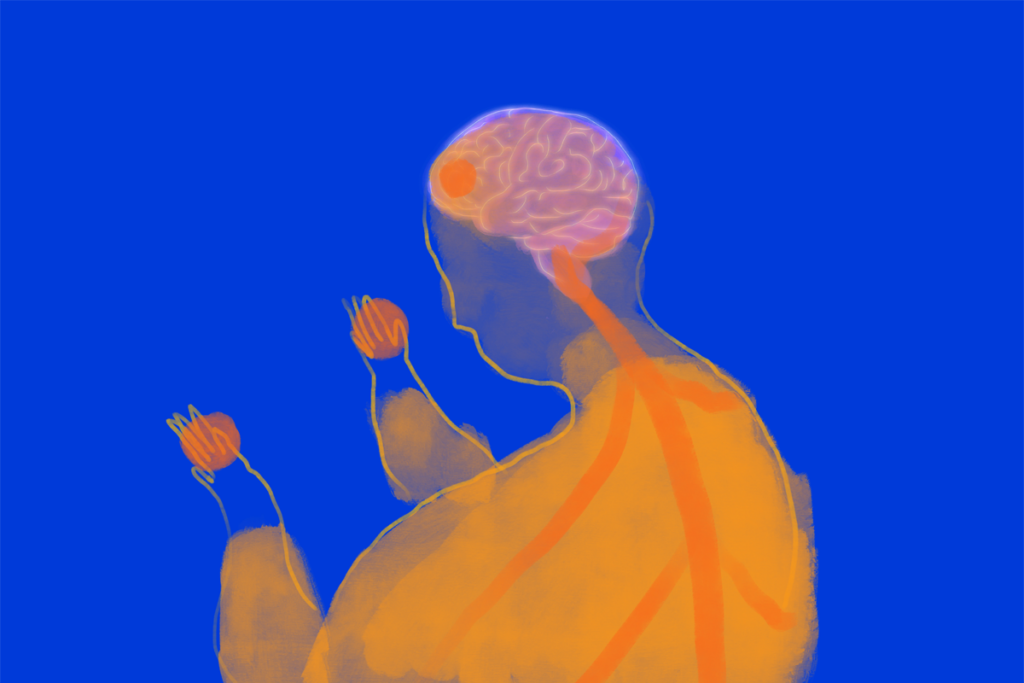
Rethinking mental health: The body’s impact on the brain
Mounting evidence illustrates how peripheral molecules can influence brain function, offering new therapeutic targets.
Vasopressin boosts sociability in solitary monkeys
Inhaling the hormone did not increase aggression in unsociable rhesus macaques and appears to help the animals remember faces and reciprocate friendly behaviors.
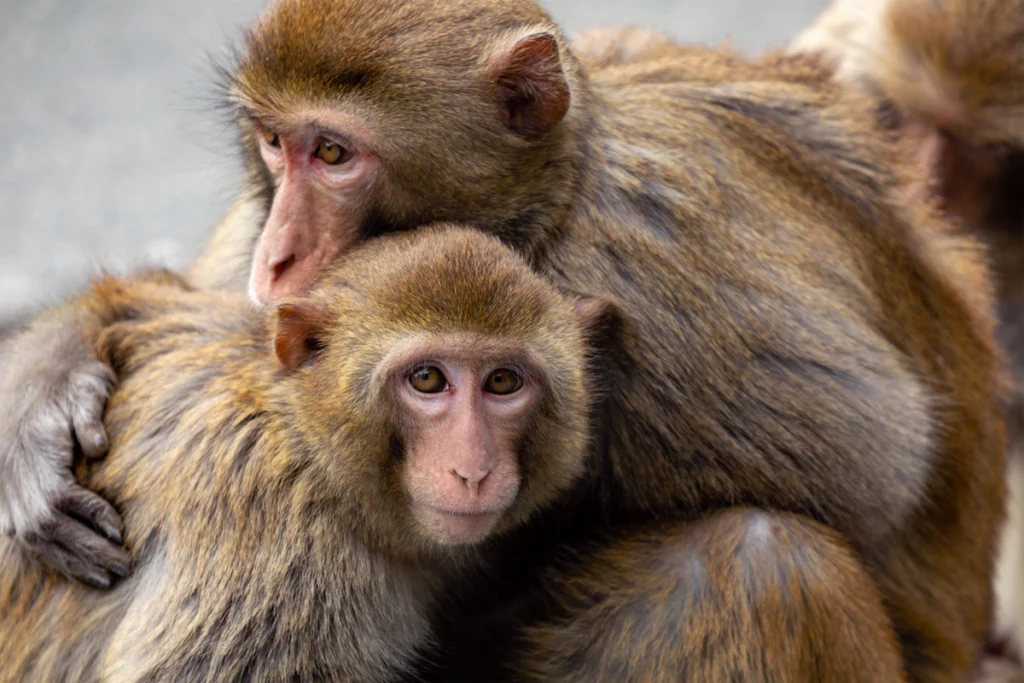
Vasopressin boosts sociability in solitary monkeys
Inhaling the hormone did not increase aggression in unsociable rhesus macaques and appears to help the animals remember faces and reciprocate friendly behaviors.
Newfound gene network controls long-range connections between emotional, cognitive brain areas
The finding could help unravel gene regulatory networks and explain how genetic and environmental factors interact in neurodevelopmental conditions.
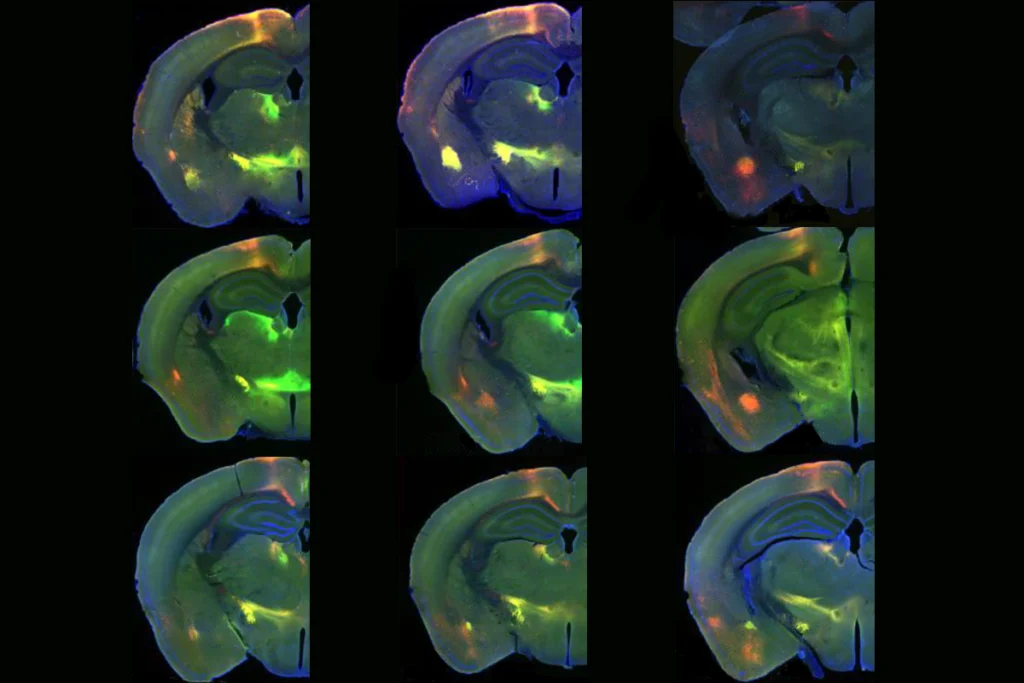
Newfound gene network controls long-range connections between emotional, cognitive brain areas
The finding could help unravel gene regulatory networks and explain how genetic and environmental factors interact in neurodevelopmental conditions.
Should I stay (and eat) or should I go? How the brain balances hunger with competing drives
Understanding the interplay among rival signals, such as pain, thirst and fear, could provide insights into anxiety and other neuropsychiatric conditions.
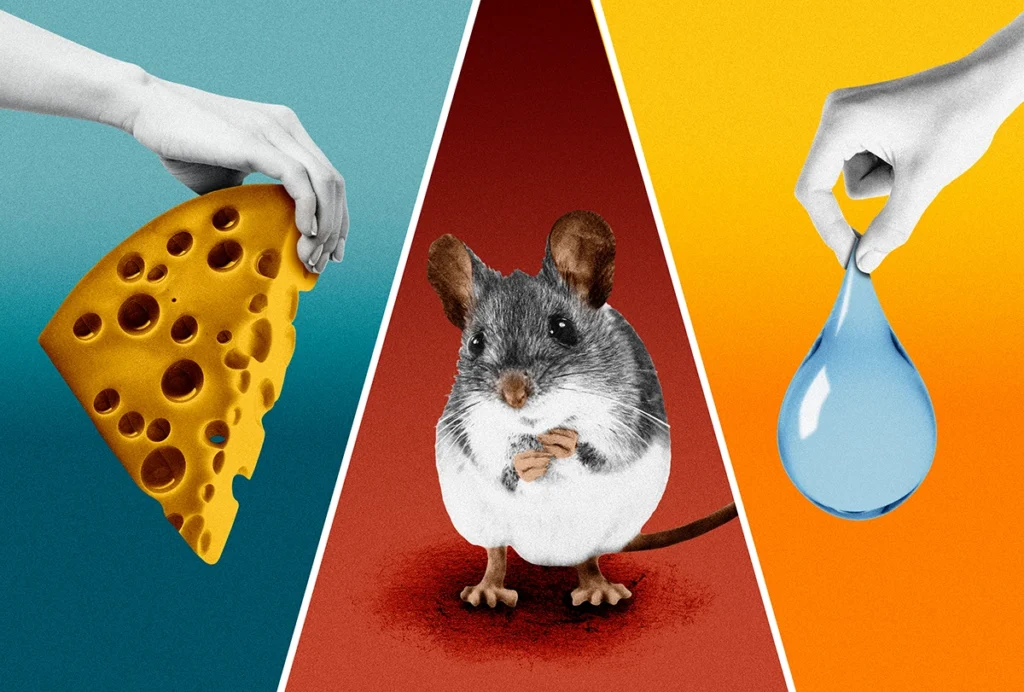
Should I stay (and eat) or should I go? How the brain balances hunger with competing drives
Understanding the interplay among rival signals, such as pain, thirst and fear, could provide insights into anxiety and other neuropsychiatric conditions.
Neurotransmitter switch-up helps fan extreme stress into full-blown fear
The flip occurs when certain neurons in the dorsal raphe start to express the chemical GABA instead of glutamate, a new study shows.
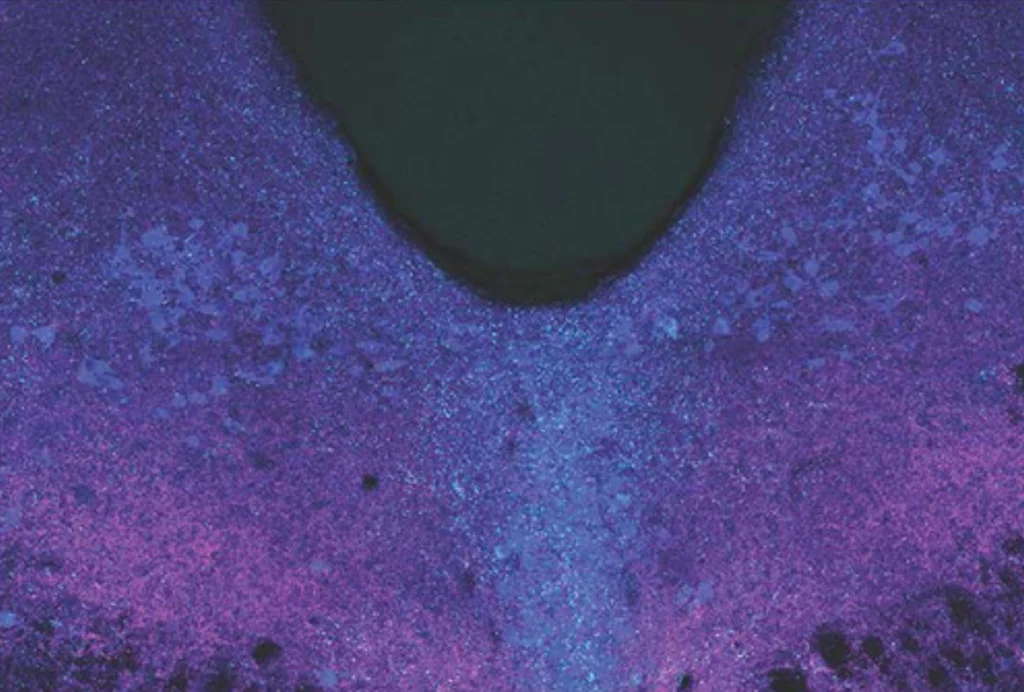
Neurotransmitter switch-up helps fan extreme stress into full-blown fear
The flip occurs when certain neurons in the dorsal raphe start to express the chemical GABA instead of glutamate, a new study shows.
Temperament is innate but hackable, animal studies suggest
Emotional reactivity and vulnerability to stress are largely inherited in rodents — but can be modified in early life by targeting inflammation-related cells or even just adjusting an animal’s environment.
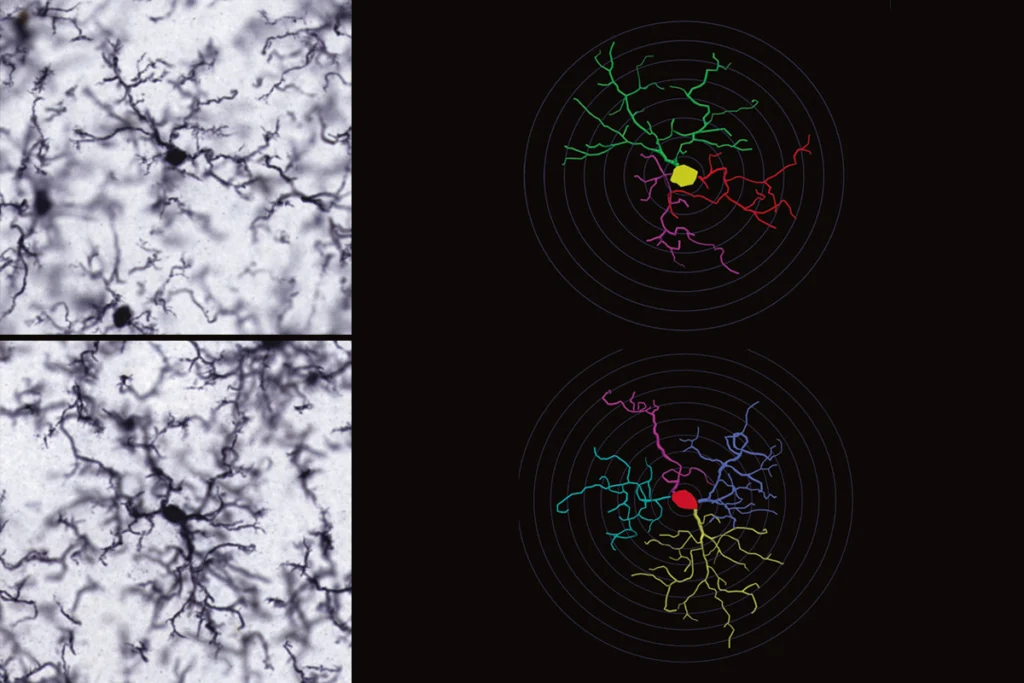
Temperament is innate but hackable, animal studies suggest
Emotional reactivity and vulnerability to stress are largely inherited in rodents — but can be modified in early life by targeting inflammation-related cells or even just adjusting an animal’s environment.
Year in Review: Spectrum’s best in 2023
Here are five must-reads from our coverage of autism research over the past 12 months.
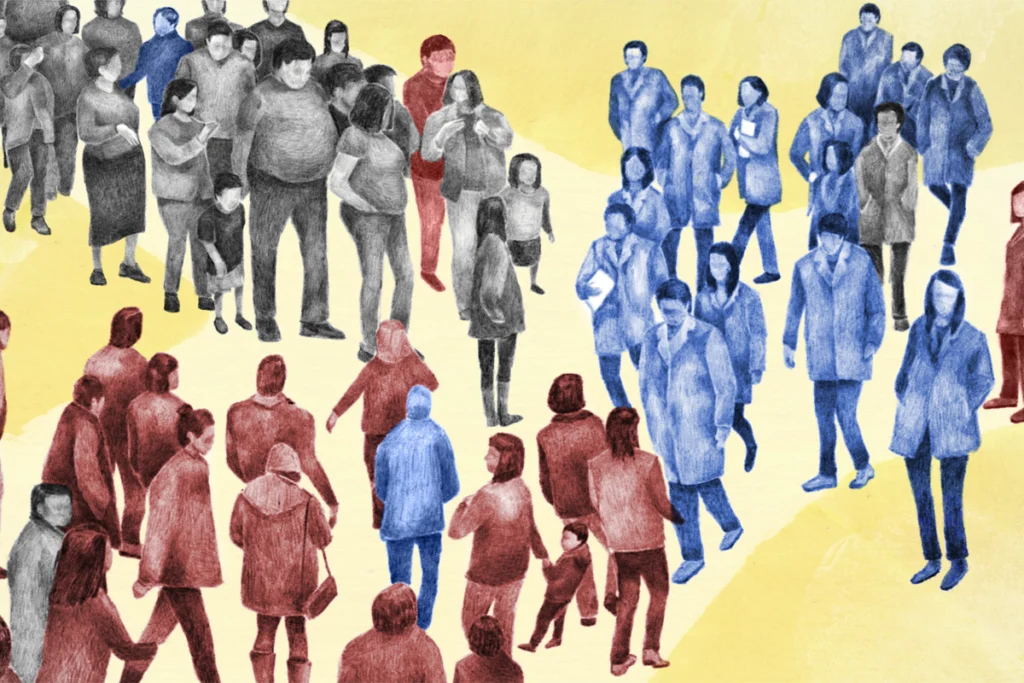
Year in Review: Spectrum’s best in 2023
Here are five must-reads from our coverage of autism research over the past 12 months.
Autism research hits the road
Some scientists are thinking creatively about how to collect data in flexible environments and meet communities where they’re at.
Autism research hits the road
Some scientists are thinking creatively about how to collect data in flexible environments and meet communities where they’re at.
Teasing apart insistence on sameness with Mirko Uljarević
The hallmark autism trait has multiple facets, Uljarević and his colleagues have found.

Teasing apart insistence on sameness with Mirko Uljarević
The hallmark autism trait has multiple facets, Uljarević and his colleagues have found.
Explore more from The Transmitter
It’s time to examine neural coding from the message’s point of view
In studying the brain, we almost always take the neuron’s perspective. But we can gain new insights by reorienting our frame of reference to that of the messages flowing over brain networks.
It’s time to examine neural coding from the message’s point of view
In studying the brain, we almost always take the neuron’s perspective. But we can gain new insights by reorienting our frame of reference to that of the messages flowing over brain networks.
Autism traits, mental health conditions interact in sex-dependent ways in early development
Here is a roundup of autism-related news and research spotted around the web for the week of 31 March.

Autism traits, mental health conditions interact in sex-dependent ways in early development
Here is a roundup of autism-related news and research spotted around the web for the week of 31 March.
Organoids and assembloids offer a new window into human brain
These sophisticated 3D cultures reveal previously inaccessible stages of human brain development and enable the systematic study of disease genes.

Organoids and assembloids offer a new window into human brain
These sophisticated 3D cultures reveal previously inaccessible stages of human brain development and enable the systematic study of disease genes.